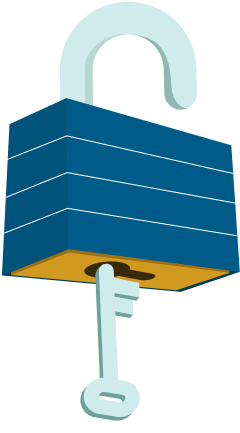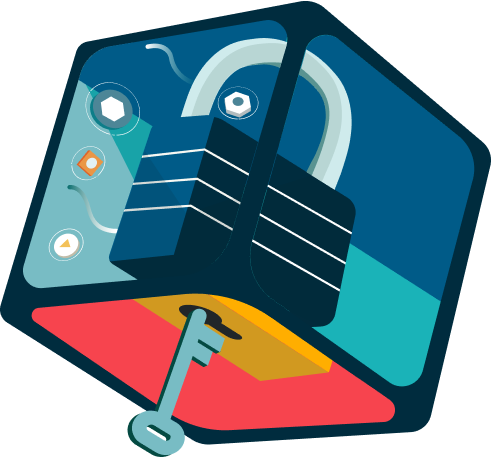Holistic Cybersecurity
The era of the interconnected “Internet of Everything” (IoE) calls for a holistic approach to ensuring data and information security. True holistic cybersecurity not only involves protecting data generated by people, processes, and products. It also includes the critical functions required to establish effective, continuous, and ongoing security measures.
How We Work

Identify
We help you identify the organizational assets, data, capabilities, and systems facing cybersecurity risks – and gain the understanding to manage these risks through various strategies.
Respond
We assist in enabling the appropriate responses to detected attacks, threats, and other cybersecurity events – including the containment of any event’s negative outcomes.
Protect
We help you develop and implement safeguards to ensure a protected system of delivering infrastructure services. These help you contain the consequences of a potential cybersecurity incident.
Recover
We help you recover and restore any of the impaired services and capabilities in the aftermath of the cybersecurity event. Our assistance extends to establishing and maintaining resiliency plans.
Detect
We assist in developing systems and activities to enable the detection and identification of occuring cybersecurity events in a timely manner. This provides full visibility into potential threats and risks.
Featured Client Stories
Client Story:
Protecting PHI and PII in Healthcare
The Client
A system of hospitals and healthcare providers with locations spread over a wide area was struggling with physical and information security-related challenges. The organization needed to protect patient information better. Physicians’ need for remote, mobile access to confidential medical records was producing overwhelming cyber risk. So was the need to maintain distinct sources of confidential information with varied governance processes.
Key Challenges
The healthcare industry is a ripe target for cyber criminals. The digital exchange of patient information means massive amounts of personal health information (PHI) and personal identifiable information (PII) are constantly passed across devices and networks. Patients demand instant access to their medical information and appointments. On top of this, the industry is heavily regulated with complex compliance requirements. All of this poses a very acute cyber security risk.
Our Solution
GCIT knows the healthcare industry very well. This knowledge allowed us to effectively work up and down the organization, from the board to the physician network, to identify and reduce their existing cyber risk. We conducted a thorough security assessment to gain insight into the organizational culture, security governance, business practices, and physical security of information assets. With this understanding, we provided remediation steps, from how to fortify perimeter defenses to improving communication channels and building employee and physician cyber threat awareness, and developed an information security policies and standards program.
Key Results Achieved
- Fortified the security of patient information, always at risk of theft due to healthcare’s operating environment
- Aligned the organization’s risk tolerance with regulatory demands to deliver a strategic cyber security plan
- Improved the internal reputation of the company’s security team and limited the risk for a future incident



